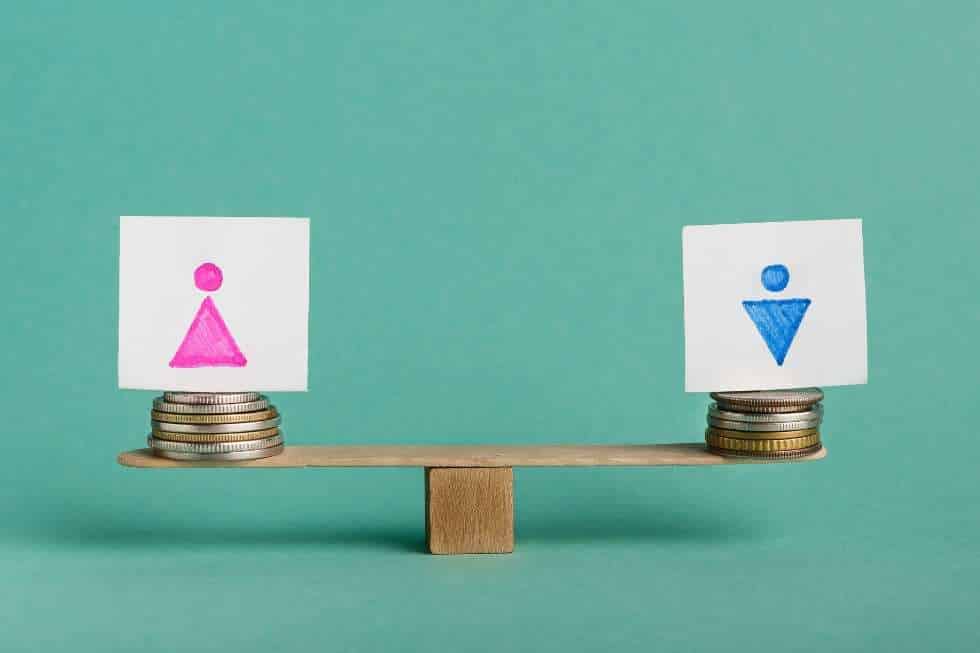April 2nd is officially Equal Pay Day. This is the day in the year that women need to work through to earn the equivalent of what a man earned in the previous calendar year.
On average, women make $.80 for every dollar that a man makes and must work 15 months for the equivalent pay of what men earn in 12 months. That’s three additional months of work for us ladies!
For minority women, the disparity is even greater, with Latina women having the greatest pay gap of $.53 to every dollar. That makes equal pay day for Latina women November 20th. 😠😡😵😲 If that doesn’t sober you up in a hot sec, I don’t know what will.
We all want equal pay for equal work. But how do we actually get there in a system that feels so unfair and set against us?
The only way to level the playing field is to get a good look at the field we’re actually playing on. In this case, that means having a clear view of what everyone on our team is paid.
I know that sounds scary. It stirs up all sorts of emotions in us. I get it.
But we need to be brave enough to break taboos and start talking about money if we want to create an environment that can foster real change. We need to get rid of the silence, fear and money shame that keeps us from talking about money and allows this gender pay gap to continue in our modern day and age.
Let me get one thing out in the open right here:
“Your salary is NOT a measure of your worth as a person.”
And while many of us understand this on an intellectual level, emotionally we are triggered before we can even blink an eye. In a business setting, we may be able to separate emotions about a business deal from the supporting data points. But when it comes to our personal finances, so many of us have our worthiness tied to our income and the size of our bank accounts.
It is important to repeat to yourself over and over and over again (perhaps indefinitely): “My salary is not a measure of my worth as a person.”
Your salary was determined by your company’s budget when you were hired, your negotiation skills at the time of your interview, your boss’s negotiation skills at the time of your interview, and the level of confidence you had to push the envelope in negotiations with your salary and benefits package.
The good thing is, if you are not earning a comparable salary, you can change that by showing your value to the company, improving your negotiation skills and boosting your confidence level.
Why the Hush Hush?
It is crazy to me in today’s society, how we have people going on reality TV shows and Dr. Phil style talk shows and revealing the most intimate details of their lives—affairs, abusive relationships, eating disorders, personal failures and on and on…. Yet when it comes to talking about how much we earn, our lips are tighter than our favorite skinny jeans.
What gives?
Money is emotional for us. We feel shame, embarrassment, and fear when it comes to money. Our worthiness is tied up in it. Or we just feel tacky touching this subject.
But guess what? If we don’t learn to talk about money in a healthy way, if we don’t create environments where people can have open and honest conversations about our earnings, we will never succeed in closing the gender pay gap.
Companies are able to pay different people different salaries for the same work because we don’t know what the salary differences are. We know in a general sense there is this thing called a gender pay gap, but we don’t know exactly how that impacts us.
The only way to stop the shroud of secrecy and silence that allows this system to continue is to bring it to light. We can not realistically expect the government to mandate equal pay from the top down if we can’t even talk about it amongst ourselves. We must have money conversations at the level that can make a real difference—our workplace. We must advocate for equal pay in the day-to-day environments of our office walls.
Steps to Start a Constructive Conversation on Equal Pay Day
Frame the conversation and talk to allies
Because money is such a sensitive subject, don’t expect everyone to get on board with this conversation at first. Start with a few people close to you that you trust. Share that you want to help create an environment where people can feel confident in knowing they are paid fairly. I bet they are as curious as you are if they are paid fairly.
If you make more than your peers…
It might feel good to know that you’re on the upper end, but put yourself in your colleagues’ shoes. They may experience a mix of unpleasant emotions, and they may even unfairly direct it at you initially. Be sensitive to what they are feeling. Once salaries are out in the open, that is the beginning of the conversation, not the end. Let your colleague vent, and then turn the conversation towards a productive tone. Talk about key moments in your career that have helped you get where you are: salary negotiations, strategic job switches, education and training. Show your colleague how you have been successful so they can implement action in their own lives
If you make less than your peers
Stop. Deep breaths. It is normal to feel upset, perhaps even angry or resentful, to find out that you are being paid less than your peers. It is critical that you do not take this out on your colleagues. Any pay difference among the team is not any one person’s fault. They, like you, have put themselves in a vulnerable situation by sharing their salary, and if you lash out any frustration at them, it is unlikely they or others will want to share again.
You have been given a gift from this person’s sharing to know that you have a higher earning potential, and what exactly that can look like for you. It’s time to dig deep and focus on your own journey.
Take an honest look at your career. Are you meeting or exceeding your boss’s expectations? Have you taken opportunities to continue developing your skillset? Are there additional trainings you can take to learn new skills to make yourself even more valuable to your company?
The reality is that once you have been at a company for a while, there is only so much your salary can increase year over year without a major promotion. If you do everything you can to make yourself the most valuable possible, and you still can’t get your pay increased, it may be time to consider moving to a new company and taking your newfound salary knowledge into your next negotiation. You can further research industry salaries on sites like glassdoor.com to arm yourself with competitive knowledge.
What Now?
It is easy to blame the gender pay gap on companies, politicians, society, but the only way to narrow (and eventually eliminate) the gap is to create an environment of transparency and open dialogue.
As women, we have a responsibility to ourselves to initiate the conversation in our day-to-day lives to close the gender pay gap. By creating a conversation amongst ourselves and inviting men to participate, we give every single person a real look at what the pay gap means on a personal level, and what specifically can be done in our own lives to address it.
So today, on Equal Pay Day, commit to having a money conversation with at least one colleague or close friend that you trust. Together we can initiate change.




